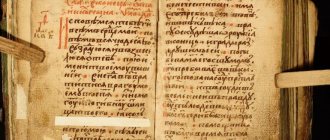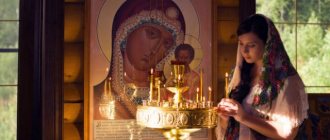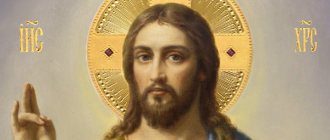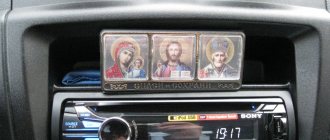This article uses Hebrew (Masoretic). numbering of psalms. Psalm 76 in Greek (Septuagint or Vulgate) numbering corresponds to Psalm 77 in Hebrew numbering.
| Psalm 76 | |
| “God is known in Judea; great is His name in Israel." | |
| Folio 105a - Psalm 76. Parma Psalters from about 1280 AD (Mrs. Parm. 1870; Codex De Rossi 510; Palatine Library) now in Parma, Italy. | |
| Another name | |
| Text | Asaf |
| Language | Hebrew (original) |
Psalm 76
(Greek numbering:
Psalm 75
) is the 76th Psalm in the Biblical Book of Psalms. This psalm explains that Judah and Israel are both names for chosen people.[1]
Text
Hebrew Bible Version
The following is the Hebrew text of Psalm 76:[2]
| Poem | Hebrew |
| 1 | לִּנְגִינֹ֑ת מִזְמ֖וֹר לְאָסָ֣ף שִֽׁיר |
| 2 | Home page |
| 3 | Home page |
| 4 | Please contact us ֶֽלָה |
| 5 | נָאוֹר אַתָּ֥ה אַדִּ֗יר מֵֽהַרְרֵי־טָֽרֶף |
| 6 | אֶשְׁתּ֚וֹלְל֨וּ | Please contact us ַ֣יִל יְדֵיהֶֽם |
| 7 | Please contact us |
| 8 | אַתָּ֚ה | Please contact us |
| 9 | Please contact us |
| 10 | Home ץ סֶֽלָה |
| 11 | כִּוֹדֶ֑ךָּשְׁאֵרִ֖ית חֵמֹ֣ת תַּחְגֹּֽר |
| 12 | Please contact us ו יֹבִ֖ילוּ שַׁ֣י לַמּוֹרָֽא |
| 13 | Home page |
King James Version
Below is the complete English text of the Psalm from the King James Bible.
To the chief musician on Neginot, Psalm or Song of Asaph.
- God is known in Judea: His name is great in Israel.
- In Salem is also his tabernacle and his dwelling in Zion.
- There he crushes the arrows of the bow, shield and sword and the battle. She sat down.
- You are more glorious and superior than the predatory mountains.
- The brave ones were spoiled, they fell asleep in their sleep, and none of the mighty men found their hands.
- At your reproach, O God of Jacob, both the chariot and the horse were thrown into a dead sleep.
- You and you are to be feared: and who can appear before you when you are angry?
- You made the judgment heard from heaven; the earth was afraid and was still
- When God rose up in judgment to save all the meek of the earth. She sat down.
- Truly, the wrath of man will praise You; You will withhold the rest of your anger.
- Promise and repay the Lord your God; let everyone around him bring him gifts that should be feared.
- He will destroy the spirit of princes: he is terrible to the kings of the earth.
Numbering of verses
in the Hebrew Bible, Psalm 76:1 contains the designation
for the Chief Musician on Neginoth, Psalm or Song of Asaph.
(KJV)
From this point on, Psalm 77:1–12 in the English version corresponds to verses 2–13 in the Hebrew text.
We read the Psalter. Psalm 76
Audio |
Conversation with Archpriest Alexy Ladygin about the Psalter.
– Dear brothers and sisters, we continue to study the Psalter and today we will talk with you about the 76th psalm, which has the inscription: at the end, about Idithum, psalm to Asaph, 76. Asaph and Idithum were the leaders of the singers, David instructed them to sing his psalms. Some say that Jedithum and Asaph had to sing this psalm alternately, others - that Jedithum was instructed by David to sing this psalm, because he had some inner confusion when he saw some kind of calamity and suffering, and at the same time there was no God's help. And then the psalmist David wrote for everyone suffering disaster: do not lose heart, do not be sad, but look at the great mercy of God, which He has shown in the history of the entire human race, especially in the chosen people, and be strengthened by this, and then all sorrow will be turned into joy. That is, the Lord will send deliverance from sorrows and difficulties. Some say that here the psalmist David prophesies about the Babylonian captivity, from which the entire Israeli people will then be delivered by the hand of God.
“I cried with my voice to the Lord, with my voice to God, and I heard.” It just says here that when you suffer disasters and suffering, you should always cry out to God. But cry not just in a prayerful, meek voice, but so that the prayer is bright, fervent. What does it mean to “cry out to God”? It means shouting loudly so that God can hear you. Indeed, when a person is in distress, he does not speak calmly, he screams, cries out so that someone can hear him and help him. This is the kind of fervent prayer that should be to God, it should be strong, unceasing, and not like we pray once and wait for the Lord to help us. No, this prayer must be repeated, repeated. That’s why it says here: “With my voice I cried to the Lord, with my voice to God, and I listened.” That is, the Lord will definitely hear you and show His mercy.
“In the day of my tribulation I sought God with my hand, when I lay before Him, and was not deceived: my soul, having been rejected, may be comforted.” Here the Psalmist says what prayer should be: it should be not only during the day, but also at night. He says: “...in the day of my tribulation I sought God with my hand, which I laid before Him, and was not deceived.” The psalmist also draws attention to night prayer - and at night he raised his hands to the Lord in disastrous, difficult conditions. And the Lord, of course, did not reject him; his soul was comforted. The Lord will also send consolation to every person who turns to God.
“I remembered God and rejoiced, my spirit was mocked and faint-hearted.” Whatever the difficult circumstances, you should not be sad, grieve, you should not give up, but, as the Psalmist writes, you should raise your hands to God. Your cowardice or sadness at this time will not help, will not give you the strength and opportunity to defeat the temptations and trials that have come to you. The Holy Fathers also say that when someone close to you dies, you also begin to cry, be sad, everything falls out of your hands, you cannot do anything. What should be done in such cases? Call on God through prayer. You must pray, turn to God, remember the name of God, then the Lord will send you consolation, and benefit your neighbor. No matter what difficult circumstances you are in, you should always seek God and remember that the Lord never abandoned anyone. Remember the miracles that the Lord performed for the entire human race! It is no coincidence that the Holy Scriptures are taught in a certain historical order: through the history of the life of an entire people, and in general the lives of people on earth, the Lord shows why He has mercy, how He has mercy, and what a person must do to receive God’s great mercy. And the Psalmist tells everyone who is sad, grieving in this life, huddled in a corner, faint-hearted and thinking only about his own misfortune, about his grief, or begins to slander his loved one (he will also talk about this later) that all this will not bring any benefit. Only the remembrance of the name of God will bring it - then the Lord will show you His mercy.
“My eyes are in anticipation of the watch: they are confused and speechless.” Previously, the night was divided into four guards, into four shifts of guards who replaced each other. Naturally, with such frequent changes, the person did not get tired, was in an alert state and could observe. The night guards were always vigilant, that is, they never slept - they were awake. In the same state, a person is in trouble: he cannot sleep at night, he is in confusion, he says some incomprehensible words, condemns, and slanders people. The psalmist warns that man should not be in such a state. How should he deal with this condition, how should he correct his thoughts? The Psalmist goes on to say:
“I thought about the first days, and remembered the eternal years, and learned.” What should you learn? You must remember God, remember the first days, and eternal years. Of course, first of all, he addresses the people of Israel, and then all Christians: look at the first days - there was a time when there was no Law yet, but even then the Lord did not abandon man, He always led him with His special Providence, His love , performed great and obvious miracles: barren women gave birth, armies were defeated, Egypt was punished, Pharaoh was drowned and disgraced, and so on. Look at history: look not only at those miracles that are in Biblical history, but also look at your life, because every person must also reflect on his own life.
It is no coincidence that our grandmothers told us, instilling faith in God, how the Lord helped them through life: how they survived the war, experienced hunger, how the Lord showed such mercy that they preserved their hearts. During the famine, there were obvious miracles when it was possible to console oneself with meager food or those supplies and labors that were performed, again, by the grace of God. They told us what they managed to do in life, and this was only possible because the Lord helped: how people gathered, and what good deeds they did, how together the villagers helped each other, or the whole clan, all the relatives helped. Miraculously, it was possible to buy a log house or someone would sell the house inexpensively, they would break them down, transport them - the Lord helped. They always saw the mercy of God in this - they never took credit for it, but said: the Lord helped, did, directed, sent good people, and so on.
And in our lives we must think the same way and tell our children how the Lord helps, how he cares not only at the present time, but also in the next days of life. After all, the Lord Himself says: do not worry about tomorrow, tomorrow will take care of itself. The Lord, by His Providence, has already taken care of us in the future. We don’t yet know what it will be like, but the Lord already knows how to nourish us, how to comfort us, how to preserve our fragile faith so that we do not show cowardice. Therefore, you need to pay attention to all this, and this will help a lot.
“My heart is mocked at night, and my spirit is saddened”: night is a special time for spiritual reflection, when there is silence and you can hear yourself - nothing distracts you. At night we need to reflect on those destinies of God that have happened in our lives.
“Will the Lord reject food forever, and show no favor again? Or will He cut off His mercy to the end, ending the verb from generation to generation? Will God forget to be generous with food? Or will He withhold His bounty in His wrath?” The Psalmist speaks very well here about our thoughts. And this is what the Jews thought when they were in Babylonian captivity. They said: Has God really taken His grace from us and will no longer give us His mercy? Will there really be no more help for us in this life? Will He cut off His mercy to the end, that is, He has taken His mercy and there will be no more of it? Skoncha verb from generation to generation: although He promised from generation to generation, from generation to generation, to help this people. These are very powerful words from the Psalmist.
We also say in our lives: has God really taken His mercy from us? Will God really not help us anymore? Will He no longer give His grace? Will God forget to be generous with food? Or will He withhold His bounties in His anger? God is merciful, He is unsurpassed in His mercy, He gives His bounties, His gifts to man, His grace. Can God really hold all this in Himself, seeing His creation in a difficult state? Yes, we are unworthy, yes, we want to change, but God gives mercy not only to the person who is faithful to Him, but it rains on every person, and the sun shines on every person. He loves His creation, His creation, although lost, although not yet entered into the bosom of the Church (that is, into the House of God). He loves everyone, He wants every person to be saved and come to the mind of truth. Therefore, God will never withhold His bounties; He will always help a person, no matter what condition he is in and no matter how difficult it is for him. The most important thing is that we must change our lives, we must call on God for help. And to reflect that God helped people even when they were unworthy of this help; He still preserved them and did not let them become despondent until the end. It’s the same in our lives: God will never leave us. Therefore, we must always remember that God's mercy will be with us.
“And rekh: now has begun, this betrayal of the right hand of the Most High.” Here the psalmist David says that the Lord corrects us with His right hand, He does not want us harm. But, again, he sends us various trials in this life, wanting to correct us: He wants salvation for every person, wants us to receive a reward in eternity, which we talked about when reading the 75th Psalm. God wants us to repent and through this join in good deeds - correct our lives, move away from all evil. Therefore, the right hand (hand) of God acts on us so that we change.
“I will remember the works of the Lord: for I will remember Your wonders from the beginning, and I will learn from all Your works, and I will mock at Your undertakings.” Here the Psalmist again reminds us to remember the works of God, strengthen ourselves by this and correct our lives. As the holy fathers say, God finds various ways to correct us, and this is truly God’s great mercy. And if this does not happen, then there will be no salvation for the human race. But we should not remain in melancholy and sadness, but joyfully endure all the trials that the Lord sends. And remember that the Lord has the power to change everything as soon as he sees not only our good deeds, but also our good intentions.
“O God, Thy way is holy: who is a great God like our God?” “I am the truth and the way and the life,” says the Savior. Of course, here we are talking about Christ - in Him is the salvation of the entire human race. And whoever believes in Christ will join in the great mercy of God, which the Lord showed through His Son. “Who is the great God as our God?” Through the Son the Father is glorified. And when these words are sung during worship (the great prokeimenon) on major holidays (Easter, Christmas and other great holidays), we begin to understand how great God is. Great not in His power, but great in His love for the entire human race. God so loved the world that He sent His only begotten Son into this world, so that whoever believes in Him would not perish, but have eternal life. And the path to God cannot be other than through Christ.
“Thou art a God who works miracles: Thou hast spoken Thy power among men, Thou hast delivered Thy people, the sons of Jacob and Joseph, with Thy arm.” If we take the literal meaning, here the Psalmist speaks of miracles that the Lord showed in people, in the people of Israel, and delivered with His arm, that is, with His power, the sons of Jacob and Joseph - the chosen people to whom he showed such mercy. The Holy Fathers say: these words also mean that through Christ the Lord gives deliverance to Christians from the actions of the enemy of the human race, who, as the Apostle Paul says, does many dirty tricks, but is restrained by the great power of Christ so as not to inflict mortal wounds on us.
“When you saw the waters, O God, you saw the waters and were afraid: the abyss was crushed.” In a literal sense, the waters parted in the Red Sea, and Israel passed through the Red Sea on dry ground. And the spiritual meaning is how the Lord came to the Jordan to receive baptism from John, and they really were afraid of the waters - the Jordan returned back. And to this day, when the Baptism of the Lord comes, for a certain moment the Jordan begins to flow in the other direction - this is also one of the great miracles in the Holy Land, about which the Psalmist prophesies. They were afraid of the waters, went back - they saw something terrible: that God Himself was entering these waters. And the abyss trembled.
“Many sounds of waters: the voice of the clouds, for Your arrows pass away. The voice of Your thunder is in the wheels, Your lightning illuminates the universe: the earth moves and trembles.” In a literal sense, the miracles that the Lord performed are retold here. What kind of miracles are these? When the Jews passed through the Red Sea, there was a lot of noise from the waters, something terrible also happened in the sky: thunder and lightning flashed, lightning struck the Pharaoh's chariots, and they intertwined with each other. That is, there were truly great miracles shown by the Lord. It is no coincidence that the psalmist David says: “Who is the great God like our God? You, God, work miracles”—it is these miracles that the Psalmist speaks of.
But we know that there is also a spiritual meaning here: the Lord, with the grace of the Holy Spirit, sanctifies the entire Universe, defeats both the arrows and lightning of the enemy of the human race. And if there had not been the grace of the Holy Spirit, then there would have been no victory over the enemy of the human race.
“Thy ways are in the sea, and Thy paths are in many waters, and Thy footsteps are not known.” The Red Sea split into two parts, and the water became a wall on one side and on the other. And then the sea united, drowned Pharaoh, and there were no traces of that great mercy of God, the miracle of God, as soon as the obvious salvation of the Jewish people: it is impossible to see the traces of God. In our lives we say that the ways of God are unsearchable. Indeed, it is impossible to count them; we can only reason, talk about them, be surprised, but it is impossible to count all the miracles that the Lord works in this life.
“Thou hast trained Thy people like sheep by the hand of Moses and Aaron.” The Lord shepherds His people like sheep, preserving them from every enemy, using His staff to guide the sheep into the right flock, into the right direction where they should go. The Lord also shepherds us like sheep, preserving us and directing us to those pastures where there is truly an opportunity to acquire and have life. The Holy Fathers say: just as Moses and Aaron had staffs testifying to the cross, so today the Lord preserves all Christians through the Cross. Therefore, the Cross for us is a power that saves us from all evil. That is why we wear a cross on which is written “Save and Preserve” on our chests: the Lord saves by the power of the Life-giving Cross, and we Christians must always wear a cross on our chests. It is gratifying to see a Russian person in the world, wherever he is, when he walks with a cross. And you can always understand: if there is a cross on the chest, this is a Russian Orthodox person, or better to say, an Orthodox Christian of the Russian land.
Lately we have very often begun to meet people who do not wear a cross. If a person does not wear a cross, it means that he does not have an understanding of how the Lord saves and preserves His flock, all His people - He saves and preserves by the cross. We not only wear a cross on our chests, but also sign ourselves with the sign of the cross and surround ourselves with crosses. It is no coincidence that now in many cities and villages crosses and large signs of the cross appear at the entrances and exits. And here it is said that the power of the Life-giving Cross is great. So the Psalmist prophesies about the Cross: that by the Cross of Christ the flock of God and all the people of God who follow Christ and consider themselves a member of the Church of Christ will be saved.
This is a comforting psalm, dear brothers and sisters. It must be read when troubles, sorrows and suffering visit us, so that we do not dissolve and die in such a state. And when we read this psalm, we will understand that the Lord can change everything and create any miracle. Even if we have incurable diseases, if it seems that the whole world has rebelled against us, then there is no need to be sad: God will always help a person - He always wants only good for a person.
God bless you all, and see you again.
Recorded by Nina Kirsanova
A comment
This psalm has some similarities with Psalm 46 and , and has been interpreted as:[3]
- celebrating the Israelis' victory over their enemies
- part of the New Year festival in Jerusalem
- prophecy about the future victory of God,
- praise after expulsion.
Splitting text (for example on NRSV) is usually:
- Verses 1-3: Praise God for choosing Zion as his home and protecting his city.
- Verses 4–6: Describe God's victory
- Verses 7–9: Picture “a judge who saves the humble.”
- Verses 10–12: Declare that all people will worship YHWH and tell them to keep their vows.[3]
In Sela
verses 3 and 9 give a “threefold structure,” with the middle section devoted to the “description of God.”[3]
Life story of Ephraim the Syrian
The Monk Ephraim the Syrian is known to the Orthodox as an outstanding ascetic and authoritative interpreter of the Holy Scriptures. Contemporaries called him the Prophet of Syria. It is believed that he was born in the early years of the fourth century in the northeastern part of Mesopotamia, in the city of Nizibia or its environs. As the saint himself said, his ancestors were very poor people and lived only on alms. But already the grandfathers and parents became farmers and stopped living in poverty. This was a noble family, which was known for its Christian virtues. The children in the family were raised in full respect for faith and fear of God for sins.
Even in the first years of the child’s life, the Lord God showed his great future in a significant vision to his parents. It explained the very name Ephraim, which translated means fruitful. The sign showed that on the boy’s tongue a huge grape tree grew, which covered the entire earth with its branches. Moreover, the more birds ate fruits, the more of them became.
But, despite this, Ephraim’s youth was quite stormy and not at all pious; he was often close to a sinful fall. The reason for this was his lack of faith in the good providence of God, who controls everything in the world around him. All this led to the fact that the conviction in the randomness of life events almost destroyed the future saint. But the Lord did not abandon him and showed him in an unusual way how great the power of God’s providence is.
At a certain period of his life, Ephraim decided to go on an aimless journey, which can be equated to vagrancy. During this, he had to spend the night in a field visiting a hospitable shepherd, with whom they had fun, carried away by a lot of alcohol. While they were sleeping, the sheep were dragged away by wolves. In the morning, the owners accused the stranger-vagrant of theft and brought him to the judge, although Ephraim tried to explain the situation. But after him they brought a man caught committing adultery with a woman. Since the judge was short on time, he adjourned the cases to another day and sent the accused to prison. There was another prisoner suspected of murder there at that time. All the people in the dungeon were united by the fact that they were all convicted and did not commit crimes.
Those arrested remained in prison for a long time and did not have the opportunity to justify themselves. On the eighth day, Ephraim saw a vision in a dream.
Someone appeared and told him the following:
“Become pious and you will be able to understand Providence. Think about everything that and how you have done throughout your life. You will understand by your example that all those imprisoned with you are not currently suffering unjustly, although they are not guilty of the crimes that are attributed to them.”
Waking up, Ephraim began to remember his life and realized how many unseemly acts he had committed. One of his most vivid memories was of how he drove a poor man's cow out of its pen in order to play a trick on him. But she was carrying a calf and very quickly became weak from the night cold. And the wolves, taking advantage of this, tore her to pieces.
Shocked by his thoughts, Ephraim shared them with other prisoners. This also made a great impression on them. Each of them remembered his own misdeed in life, which was connected with current events. After all those arrested repented, it so happened that the true culprits of the crimes that were charged against them were brought to trial. After the trial, they were all acquitted and released from prison, and the real culprits were punished. It was after this that Ephraim believed that there are no coincidences in life. For the rest of his life, he came to understand that he would have to pay for every sinful act he committed.
After this, Ephraim became a hermit, settling in the desert. His spiritual father, who helped him to comprehend the Providence of God, as well as to gain humility and obedience, became the famous Bishop of Nizibia, Saint James. Later, Ephraim settled in a monastery near the city of Edessa. Over time, he became a preacher and spiritual mentor to the monks. Increasingly, lay people also began to turn to him for advice, to whom he never refused help. Ephraim the Syrian lived for more than a hundred years.
The saint died in solitude, having written the following in his will:
“Efrem never had gold or silver during his lifetime. He lived, fulfilling the will of the Teacher Christ, who commanded: do not acquire anything on earth.”
References
- The Story of Psalm 76
- "Teillim - Psalms - Chapter 76." Chabad.org. 2022. Retrieved January 26, 2022.
- ^ a b c
Rodd, S. S. (2007).
"18. Psalter." In Barton, John; Muddiman, John (ed.). Oxford Bible Commentary
(first (paperback) ed.). Oxford University Press. p. 388. ISBN 978-0199277186. Retrieved February 6, 2019. - The Artscroll Tehillim page 329










